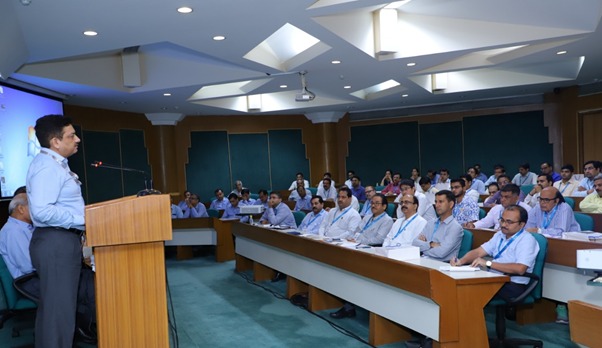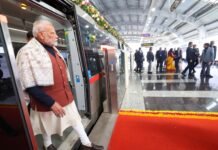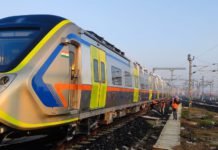NEW DELHI (Metro Rail News): Regional Rapid Transit System (RRTS) is a first of its kind mobility service being implemented in India. Keeping this in mind, since its inception, NCRTC is having regular consultations with stakeholders, industry leaders, etc. for the timely and efficient execution of RRTS project. In this direction, a ‘Vendor Meet – Consultation with Prospective Construction Partners’ was organized on August 5, 2019, in New Delhi. Representatives from more than 45 reputed and leading civil, electrical and architecture firms including IRCON, HCC, ABB India Ltd, AFCONS, Siemens Ltd, Simplex India, L&T, Tata Projects, etc participated in the meet.

During the meet, NCRTC officials gave a detailed overview of the project with special emphasis on procurement strategy and packaging plan of the Delhi-Ghaziabad-Meerut Corridor. The industry captains shared their valuable insights, expectations, suggestions, and ideas about the project execution, contract design, and risk allocation framework.
Addressing the gathering, Shri Vinay Kumar Singh, MD, NCRTC, said, “Projects like RRTS are imperative for sustainable economic growth required to realize the Government’s vision of making India a $5 trillion economy. The responsibility given to NCRTC is huge and NCRTC is committed to facilitate and create a work environment – an ecosystem in which our partners can work efficiently & confidently.” Shri Singh further called on the industry to join hands with NCRTC in its endeavor to deliver excellence in this socially-oriented infrastructure project aimed at improving the quality of life of people and catalyzing polycentric, sustainable development of NCR.
“We are looking for partners to work with us and take up challenges while being a part of this ambitious project with the idea of New India and next-generation infrastructure,” said Shri Singh.
Notably, the construction work between 17km-long Duhai to Sahibabd section of Delhi-Meerut (82km) RRTS corridor is in full swing. The priority section is expected to become operational by March 2023 while people of the region can travel on the full corridor from March 2025.








